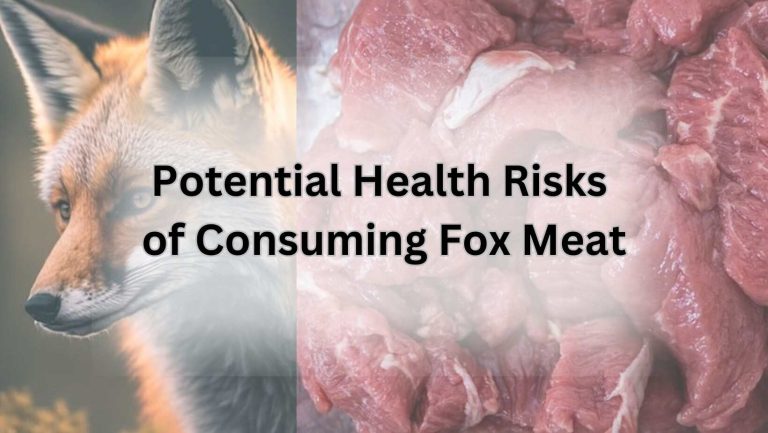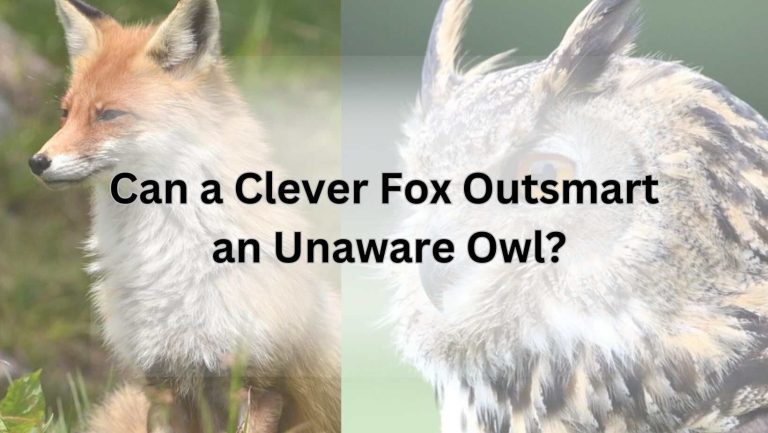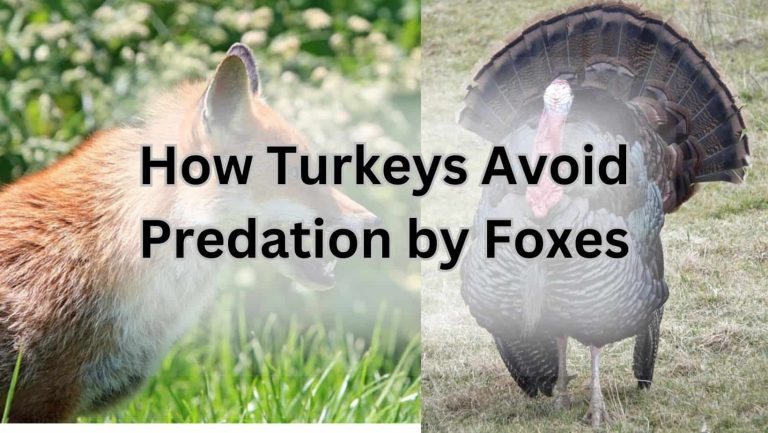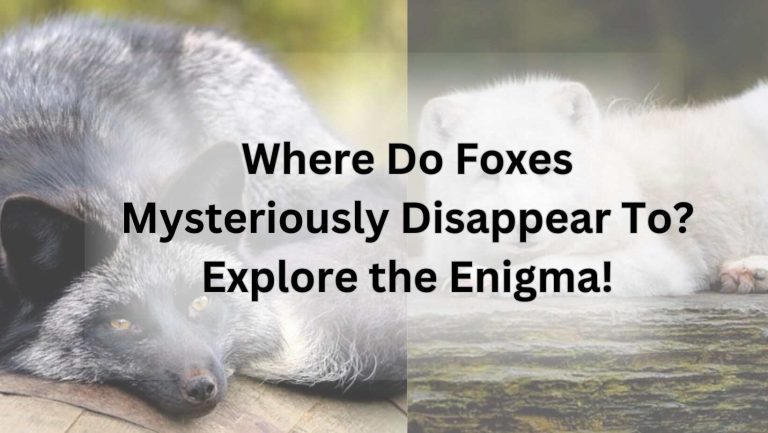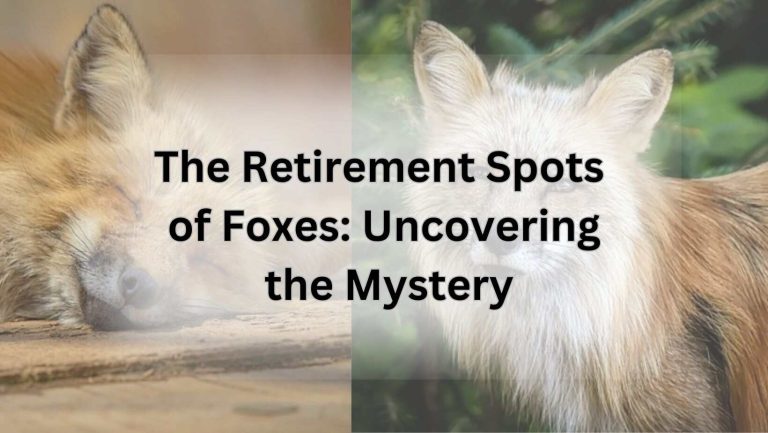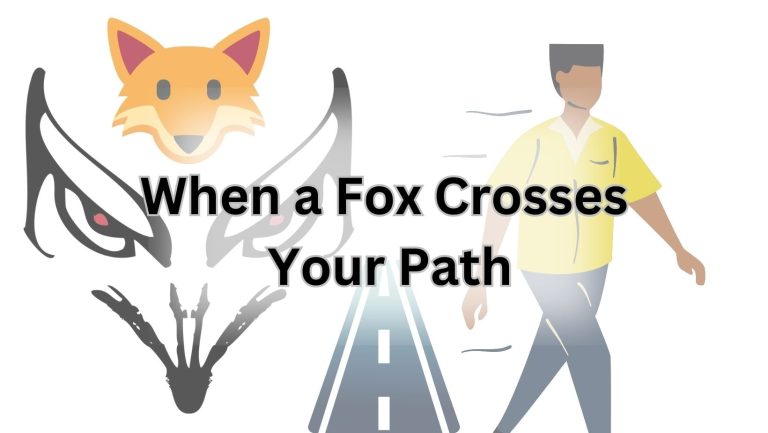Do Foxes Feast on Hawks? The Ultimate Predator Showdown!
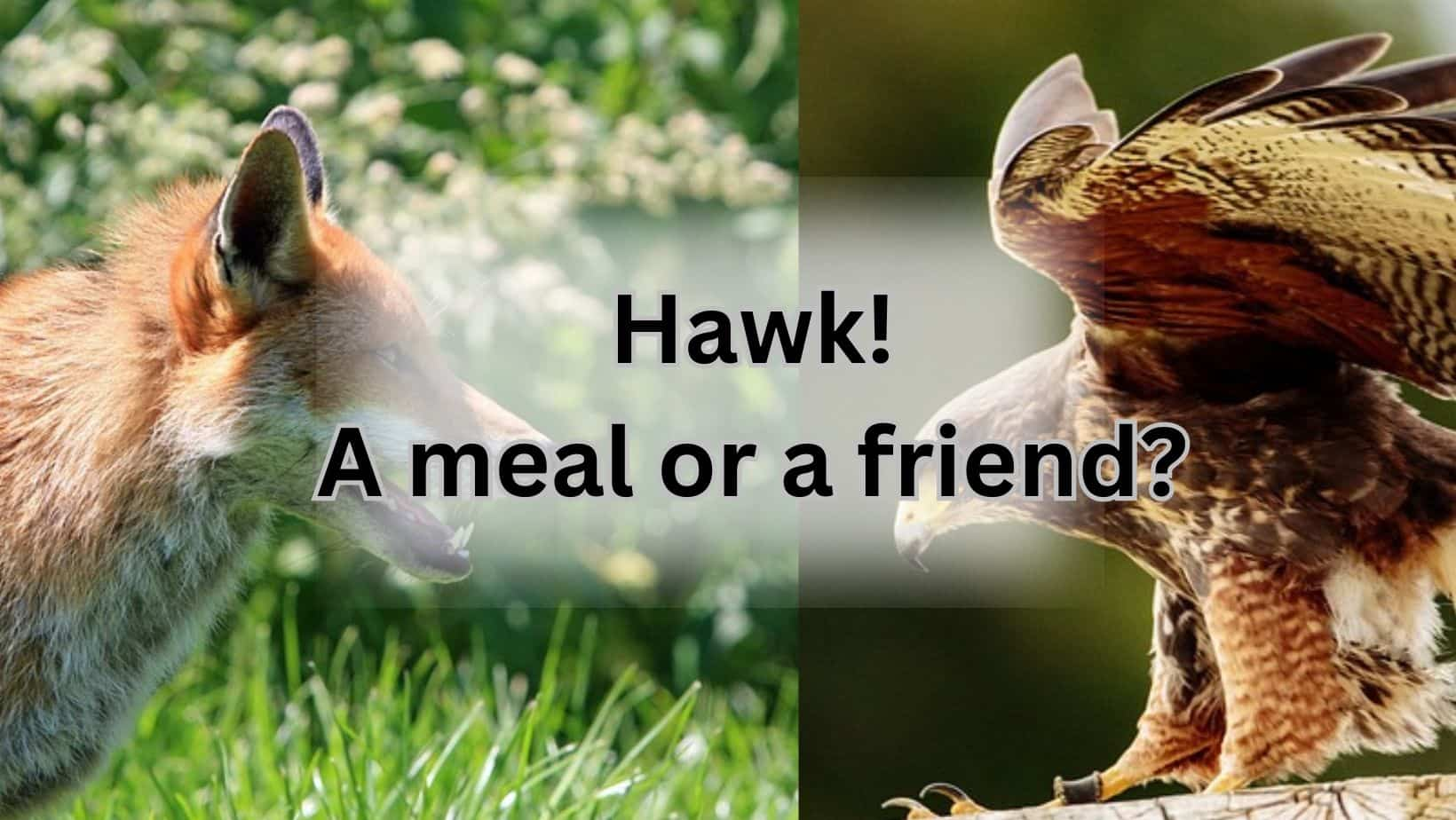
Do Foxes Eat Hawks
Yes, foxes are known to eat hawks as part of their diet. Let’s delve into the predatory behavior of foxes, their dietary habits, and the interactions between foxes and hawks to understand this fascinating relationship better.
Predatory Behavior of Foxes
Have you ever wondered how foxes manage to catch their prey, including hawks? Well, these cunning creatures are skilled hunters, using their sharp senses and agility to ambush their targets. Foxes are opportunistic predators, meaning they will hunt a variety of animals depending on what is available in their environment.
Dietary Habits of Foxes
What’s on the menu for a hungry fox? Foxes are carnivorous animals, which means they primarily feed on meat. Their diet can include small mammals like rabbits, rodents, birds, and yes, even hawks. Foxes are known to scavenge for food as well, making them adaptable and resourceful when it comes to finding their next meal.
Interactions Between Foxes and Hawks
How do foxes and hawks coexist in the wild? While foxes may prey on hawks, it’s essential to remember that they are part of the natural food chain. Hawks are also predators in their own right, hunting smaller animals for sustenance. The interactions between these two species are a fascinating example of the delicate balance of nature.
So, next time you spot a fox or a hawk in the wild, remember that they are both playing their part in the intricate web of life. Nature’s predators and prey have their roles to play, and observing these interactions can offer a glimpse into the beauty and complexity of the natural world.
Foxes as Predators
Adaptations for Hunting
Ever wondered how those cunning foxes manage to catch their prey? Well, let me tell you, these furry creatures are equipped with some impressive hunting skills! From their keen sense of smell to their stealthy movements, foxes are true masters of the hunt. But what really sets them apart is their adaptability. Foxes can thrive in various environments, whether it’s the dense forests or the open fields, making them versatile predators.
Food Sources for Foxes
Now, let’s talk about everyone’s favorite topic – food! Foxes are carnivorous animals, which means they primarily feed on meat. Their diet includes small mammals like rabbits, rodents, and birds. But here’s where it gets interesting – foxes are opportunistic feeders. This means they won’t say no to a tasty hawk if the opportunity presents itself! So, do foxes eat hawks? Well, let’s just say they wouldn’t pass up a chance for a feathery meal.
Role in Controlling Pest Populations
Have you ever thought about the important role foxes play in controlling pest populations? These clever creatures help keep the balance in nature by preying on small animals that can become pests if left unchecked. By keeping the numbers of rodents and other critters in check, foxes actually contribute to maintaining a healthy ecosystem. So, the next time you spot a fox in the wild, remember that they’re not just cute – they’re also doing their part in pest control!
And there you have it, folks! Foxes may not be the biggest predators out there, but they sure know how to survive in the wild. With their hunting skills, adaptability, and important role in the ecosystem, foxes are truly fascinating creatures. So, the next time you see one of these sly animals on the prowl, just remember – they’re not just looking for a quick snack, they’re playing their part in the circle of life.
Hawk Predation Risks
Vulnerability to Predators
Ever wondered if those majestic hawks are always safe from predators like the cunning foxes? Well, let’s dive into the world of predator-prey relationships in the wild. Foxes, being carnivorous animals, are known for their hunting prowess. They have a keen sense of smell and sharp eyesight, making them formidable predators in the animal kingdom. While hawks may soar high in the sky, they are not immune to the threats posed by ground-dwelling predators like foxes. These birds of prey may be vulnerable to attacks when they are on the ground, especially during nesting or feeding times.
Impact of Predators on Hawk Populations
How do predators like foxes affect the populations of hawks in the wild? It’s a delicate balance in nature, where predator-prey relationships play a crucial role in maintaining ecosystem health. While foxes may pose a threat to hawks, they also help regulate the population of these birds by preying on weaker individuals. This natural selection process ensures that only the fittest hawks survive, leading to stronger and healthier populations in the long run.
Hawk Adaptations for Predator Avoidance
Do hawks have any tricks up their sleeves to avoid becoming a fox’s next meal? These birds are not defenseless against predators; they have evolved various adaptations to stay one step ahead of their potential threats. Hawks are known for their agility and speed in flight, allowing them to escape from ground predators like foxes. Additionally, their keen eyesight helps them spot potential threats from a distance, giving them a chance to flee before becoming a target.
In the intricate dance of predator and prey, foxes and hawks play their roles in the circle of life. While foxes may occasionally target hawks as a food source, these birds of prey have their own set of skills to evade becoming a meal. It’s all part of the fascinating web of life in the wild, where each species must adapt and evolve to survive in a world full of challenges and dangers. So, next time you spot a fox or a hawk in the wild, remember the delicate balance of nature that keeps them on their toes, or claws, as the case may be!
Ecosystem Interactions
Predator-Prey Relationships
Do foxes really have a taste for hawks? Let’s dive into the fascinating world of predator-prey relationships in the wild. Foxes are known to be cunning hunters, but do they have what it takes to take down a majestic hawk?
Foxes are opportunistic carnivores, meaning they will eat a variety of prey depending on availability. While hawks may not be their primary target, foxes have been observed preying on birds, including smaller species like songbirds and poultry. However, the idea of a fox hunting down a hawk might be a bit far-fetched. Hawks are powerful raptors with sharp talons and beaks, making them formidable opponents for most predators, including foxes.
Biodiversity and Food Webs
How do foxes and hawks fit into the intricate web of life in an ecosystem? Biodiversity plays a crucial role in maintaining a healthy balance in nature, and predator-prey relationships are a key component of this delicate balance.
Foxes and hawks occupy different niches within the food chain. While foxes primarily hunt small mammals, birds, and insects, hawks are top predators that feed on a variety of prey, including rodents, reptiles, and other birds. This diversity in diet helps prevent overpopulation of certain species and ensures the survival of others.
Human Influence on Predator-Prey Dynamics
How has human activity impacted the predator-prey dynamics between foxes and hawks? As human populations continue to expand and encroach on natural habitats, wildlife is facing increasing challenges and threats.
Deforestation, urbanization, and pollution have all had a significant impact on the populations of both foxes and hawks. Loss of habitat and food sources can disrupt the delicate balance between predators and prey, leading to potential conflicts and competition for resources. It is essential for us to be mindful of our impact on the environment and take steps to protect the diverse wildlife that call our planet home.
Study of Fox-Hawk Interactions
What do we know about Fox-Hawk interactions?
Do foxes eat hawks? Let’s dive into the fascinating world of predator-prey relationships between these two unique species. Research findings have shown that foxes are indeed opportunistic predators and will not hesitate to snatch up a hawk if given the chance. However, these interactions are not as common as you might think. Foxes typically target smaller prey like rodents, rabbits, and birds, rather than taking on a formidable opponent like a hawk.
Why is it important to understand predator interactions?
Understanding the dynamics between predators like foxes and hawks is crucial for maintaining a balanced ecosystem. By studying how these animals interact with each other, researchers can gain valuable insights into the intricate web of relationships that exist in nature. This knowledge can help conservationists make informed decisions about wildlife management and habitat protection.
Where do we go from here?
As we look to the future, there are still many unanswered questions about fox-hawk interactions. How do environmental factors influence their behavior? Are there specific regions where these interactions are more common? By continuing to study these fascinating predators, we can deepen our understanding of the natural world and work towards creating a more sustainable future for all species.
In conclusion, the study of fox-hawk interactions offers a glimpse into the complex and interconnected world of predator-prey relationships. By unraveling the mysteries of these interactions, we can gain a deeper appreciation for the delicate balance of nature and the role that each species plays in maintaining it. So, the next time you spot a fox or a hawk in the wild, take a moment to marvel at the intricate dance of life unfolding before your eyes.
Conservation Concerns
Threats to Fox and Hawk Populations
Do foxes eat hawks? The age-old question that has puzzled nature enthusiasts for generations. Well, let’s dive into the conservation concerns surrounding these magnificent creatures. Foxes and hawks, both essential parts of the ecosystem, are facing various threats to their populations. From habitat loss to human interference, these animals are struggling to thrive in their natural environments.
Conservation Strategies
How can we protect these beautiful creatures from disappearing forever? Conservation strategies play a crucial role in ensuring the survival of foxes and hawks. By implementing measures such as habitat preservation, captive breeding programs, and education initiatives, we can help these animals flourish in the wild. It’s time to step up and make a difference in the lives of these amazing creatures.
Role of Community Involvement
What role does the community play in the conservation of foxes and hawks? Community involvement is vital in safeguarding the future of these animals. By raising awareness, participating in conservation projects, and supporting local wildlife organizations, we can create a better environment for foxes and hawks to thrive. Let’s come together as a community and make a positive impact on the lives of these majestic creatures.
Remember, the survival of foxes and hawks is in our hands. Let’s work together to protect and preserve these incredible animals for future generations to enjoy. Conservation efforts are essential in ensuring the continued existence of these species in the wild. So, let’s join forces and make a difference in the world of wildlife conservation.
Urban Wildlife Management
Human-Wildlife Conflicts
Ever wondered what happens when urban development encroaches on the natural habitats of our wild friends? Well, as a Canid Wild Life Lover with 20 years of experience, let me tell you – it’s not always a walk in the park. Foxes and hawks, in particular, often find themselves in the midst of human-wildlife conflicts when their territories are invaded by urban sprawl. But fear not, there are ways to mitigate these conflicts and promote peaceful coexistence.
Coexistence with Predators
Can foxes and hawks really learn to live side by side in our urban jungles? It may sound like the plot of a Disney movie, but in reality, it’s all about finding a balance. Foxes are cunning hunters, while hawks are skilled predators of the sky. By understanding the behaviors and needs of these animals, we can create environments that allow them to thrive without causing harm to each other or to us.
Balancing Conservation and Urban Development
How do we strike a balance between preserving the natural habitats of foxes and hawks and continuing to develop our cities? It’s a tricky tightrope act, but with careful planning and consideration, it can be done. As urban areas expand, it’s crucial to implement measures to protect the wildlife that calls these places home. From creating green spaces to installing wildlife-friendly fencing, there are plenty of ways to ensure that foxes and hawks can continue to roam free in our urban landscapes.
So, next time you spot a fox or a hawk in your neighborhood, remember that they are just trying to make a living in a world that is constantly changing around them. By understanding their needs and behaviors, we can create a harmonious environment where both humans and wildlife can thrive together. Urban wildlife management may not always be easy, but with a little bit of creativity and compassion, we can make our cities a better place for all creatures, big and small.
Myths and Misconceptions
Folklore and Beliefs
Do foxes really have a taste for hawks? Let’s debunk some myths and explore the folklore surrounding these two fascinating creatures.
Contrary to popular belief, foxes do not typically prey on hawks as a primary food source. While foxes are opportunistic hunters, they are more likely to target smaller mammals, birds, and insects for their meals. Hawks, on the other hand, are skilled aerial predators that often hunt small rodents, birds, and other prey in the wild.
Scientific Facts vs. Myths
Are foxes and hawks mortal enemies, or is there more to their relationship than meets the eye? Let’s separate fact from fiction and delve into the scientific truths.
Although foxes and hawks may occasionally come into contact in the wild, it is rare for foxes to actively hunt down hawks as a primary food source. Foxes are more likely to scavenge for food or hunt smaller prey that is easier to catch. Hawks, with their impressive aerial hunting skills, are not typically easy targets for terrestrial predators like foxes.
Education on Wildlife Ecology
What can we learn about the natural world by studying the interactions between foxes and hawks? Let’s explore the fascinating world of wildlife ecology and the delicate balance of predator-prey relationships.
Understanding the roles that different animals play in their ecosystems can provide valuable insights into the interconnected web of life. While foxes and hawks may not be direct adversaries, they each have unique hunting strategies and adaptations that allow them to thrive in their respective habitats. By studying these animals, we can gain a deeper appreciation for the complexity and beauty of nature.
Role of Predators in Ecosystem Health
Ever Wondered How Predators Keep the Balance in Nature?
Have you ever pondered on the intricate web of life where predators like foxes play a crucial role in maintaining the delicate balance of ecosystems? Let’s delve into the fascinating world of top-down regulation.
From the majestic forests to the vast grasslands, predators like foxes act as nature’s regulators, ensuring that populations of prey species remain in check. This top-down regulation is essential for the overall health and stability of ecosystems, preventing overpopulation and maintaining biodiversity.
The Ecological Services Provided by Predators
Do you know the valuable ecological services that predators offer to their habitats? Let’s uncover the hidden benefits of having these carnivorous creatures in the wild.
By preying on herbivores, predators like foxes help control the population of these animals, preventing them from decimating plant life and disrupting the food chain. This, in turn, promotes a healthier ecosystem where each species plays its part in maintaining the delicate balance of nature.
Human Benefits from Predator Presence
Have you ever considered how humans benefit from the presence of predators in the wild? Let’s explore the surprising ways in which these carnivores contribute to our well-being.
Interestingly, predators like foxes help control pests that can damage crops and spread diseases, ultimately benefiting farmers and agricultural communities. Additionally, by maintaining a healthy ecosystem, these predators provide us with clean air, water, and other essential resources that are vital for our survival.
Conclusion: Coexistence and Conservation
Importance of Predator Diversity
Ever wondered how foxes and hawks manage to coexist in the wild? It all comes down to the importance of predator diversity. While foxes primarily hunt small mammals like rodents and birds, hawks target larger prey such as rabbits and other birds. This diversity in predation helps maintain a balanced ecosystem where each species plays a vital role in controlling populations and ensuring the health of the environment.
Human Responsibility in Wildlife Conservation
As wildlife enthusiasts, it’s crucial for us to recognize our role in conserving the natural world. By protecting habitats, advocating for conservation efforts, and respecting the boundaries of wildlife, we can help ensure the continued survival of species like foxes and hawks. It’s up to us to be stewards of the environment and work towards creating a sustainable future for all creatures.
Future Outlook for Foxes and Hawks
What does the future hold for these fascinating creatures? With increasing urbanization and habitat loss, both foxes and hawks face challenges in adapting to changing environments. However, with proper conservation measures and awareness, we can help secure a bright future for these animals. By promoting coexistence and understanding the importance of predator diversity, we can ensure that foxes and hawks continue to thrive in the wild.
In conclusion, the relationship between foxes and hawks highlights the intricate balance of nature and the importance of predator diversity in maintaining healthy ecosystems. By recognizing our role in wildlife conservation and working towards a sustainable future, we can help protect these magnificent creatures for generations to come. So let’s continue to appreciate the beauty of the natural world and strive to coexist harmoniously with all species.


